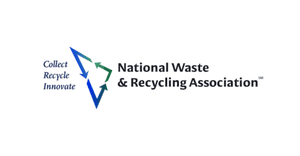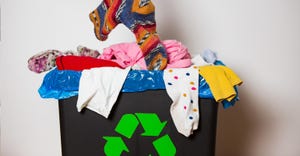2020 In the Rear-View Mirror

What a year! 2020 has been a most unusual time for all of us. The year started off quietly, but when the country locked down in mid-March due to the COVID-19 pandemic, everyone’s playbook went out the window. Listed below, in no particular order, are some of the more interesting waste and recycling stories in 2020.
Waste and Recycling is Essential
Declaring waste management an essential industry was one of the first responses to the pandemic. That was a no-brainer. Waste collection and disposal is a public health necessity. Recycling isn’t. Instead, it is a raw materials industry. Manufacturers immediately made it clear they needed recyclables from curbside and container deposit programs. The quick inclusion of recycling collection and processing as essential was a testament to that importance. Unfortunately, the ten deposit states did manufacturers no favors by suspending deposit redemption, but most were back in operation by summer.
Reusables Take a Hit
Plastic bag bans were quickly suspended at the beginning of the pandemic. This was largely due to fears that the bags would transmit the virus. Those fears were fanned by studies that claimed to show reusable bags were potential transmitters. Eventually the reality that the virus spreads through the air and not by surface contact dispelled those fears. But the damage was done. Many grocery stores continue to insist that those of us who use reusable bags pack them ourselves.
Legislation Mostly Disrupted
At the beginning of the year, legislators showed renewed interest in recycling. More bills were introduced at the state and federal level than in previous years. The pandemic, however created legislative chaos. Many good bills didn’t have a chance to go through both legislative chambers and past the Governor’s desk. Notably, California enacted recycled content legislation for plastic beverage containers. The bill requires 15 percent recycled content in 2022, 25 percent in 2025 and 50 percent in 2030. Beverage companies should have little trouble meeting the first two deadlines given the ability of that state’s container deposit law to supply consistent quantities of high quality PET bottles. The 2030 goal will be more challenging. However, if the beverage industry ever decides to support recycling with a national deposit law, they won’t have any problem meeting their goals.
On the Hill, members of Congress showed a great deal of interest in recycling. A number of bills with names such as RECOVER and RECYCLE and Break Free From Plastics Pollution were introduced. Only the Save Our Seas 2.0 Act was able to pass both houses and be signed. This new law built upon Save Our Seas 1.0 https://www.congress.gov/bill/115th-congress/senate-bill/3508 which was enacted in the previous Congress. Both laws focused on reducing marine debris and included funding for local recycling programs. They succeeded for a simple reason. They had bipartisan support with co-sponsors who chaired key House and Senate committees.
Policy Versus Practicality
Saabira Chaudhuri has written many good stories about consumer goods and retail industries for the Wall Street Journal. Her November 21 article “Chocolate Makers Are Having A Hard Time Cutting Down on Sugar” raises, to me, interesting questions about what happens when policy goals run into technology and human nature.
Granted, her story is about attempts to reduce the amount of sugar in chocolates. What does that have to do with garbage and recycling? To me, it is an example of what happens when an industry is told to achieve a goal that, no matter how worthy, may be unattainable. As legislators consider new recycling laws, they need to remember that technology cannot solve everything and that human nature might not cooperate.
Plastics as the Root of All Evil
The anti-plastic rampage continues. The PBS Frontline documentary Plastic Wars https://www.pbs.org/wgbh/frontline/film/plastic-wars/ stirred up a storm by denouncing plastic recycling as a sham. While the report itself was deeply flawed, it continues to influence the political debate about plastic recycling. Anti-plastic groups denounced Save Our Seas 2.0 for its emphasis on recycling. While they are right that reduction is a more effective long-term solution, they fail to provide any evidence that reduction measures, including international treaties, can be put into place in the immediate future. Until we can figure out how to effectively change consumer behavior to use less single-use plastics, we have no choice but to improve plastic recycling.
Next month I’ll look forward with some predictions about what to expect in 2021. For now, let’s wave goodbye to 2020 and hope its successor is a new, improved year.
About the Author
You May Also Like




